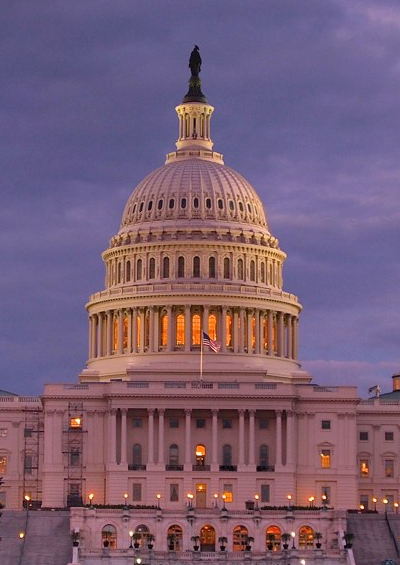Enter Alexandria Ocasio-Cortez, Socialist
When Ocasio-Cortez calls for “Medicare for All,” the right calls her a socialist. But a large segment of the US electorate may be ready for a bit of socialism.
February 24, 2019

The word “socialist” is suddenly gaining currency in American politics. After decades of laying dormant, the term briefly reared its ugly head in Bernie Sanders’ run for the US presidency in 2016.
But it quickly disappeared when Hillary Clinton won the Democratic Presidential nomination. Now, however, the word is suddenly experiencing a major renaissance.
In fact, it was used prominently during President Trump’s recent State of the Union speech, turning the word into the GOP’s go-to weapon against Democratic opponents. It is a cudgel with which to beat questioning individuals into blind submission.
All of this has occurred in large measure due to a rising political star named Alexandria Ocasio-Cortez, or AOC as she is known. She became a force with which to be reckoned in Democratic Party politics when she unseated 10-term Democratic Congressman Joe Crowley in a primary election in New York.
AOC is young, attractive and articulate. And she certainly isn’t shy. She relishes being a bomb-thrower, eager to lob bold ideas into the sclerotic center of moderate Clintonian politics.
Republicans have assigned to her the role long held by House Speaker Nancy Pelosi, who had in the past been used as a lightning rod for the vilification of “liberals.”
Republicans had long deployed the two-word refrain — “Nancy Pelosi” — to rally its base, but in 2018 the inflammatory character of those two magic words wore off, when they failed to help Republicans hold their majority in the House of Representatives in the mid-terms elections.
As a result, the Republicans probably reckoned it was time to move on. Long adept at vilification and name-calling, they pounced on AOC.
In the process, they upped the name-calling ante from “liberal” to “socialist.” Republicans now plan to ride the term “socialist” right into the 2020 Presidential elections.
Causing Apoplexy on the right
To be sure, AOC arrived in Washington with a progressive set of policy goals. Taken in large part from Bernie Sanders’ 2016 playbook, she strongly advocates for universal health care, higher tax rates for the wealthy, tuition-free college and a healthy respect for the environment — A Green New Deal.
Though policy goals such as these are broadly accepted in European politics, the mere articulation of such policy prescriptions causes apoplexy on the right in the United States. It has even disoriented the Democratic establishment, which has remained fearful of going too far left since the days of Ronald Reagan.
In a broader sense, it seems to strike fear in the hearts of older voters on both sides of the political divide. They retain memories of the dysfunctional U.S. economy of the 1970s and the GOP-led recovery of the 1980s, which cast off socialist principles in favor of market capitalism.
As mainstream Democrats cower at the prospect of being called a socialist, the 29-year old AOC seems to bask in its sunlight.
With AOC serving as a more appealing version of Bernie Sanders, subjects that have been verboten even to talk about in recent U.S. politics have been brought out into the open. In effect, AOC helps the American left cast off the shackles of the intellectual censorship imposed by the right.
Social justice versus identity politics
Far more importantly, the very concept of “socialism” has the power to cut through the identity politics that has long been the bedrock of Democratic politics. AOC has so far avoided basing her appeal on being a woman or, more specifically, being Latina.
Instead, she cleverly embraces all the colors of the “rainbow coalition” without pandering to any one of the broad demographic groups that comprise the modern Democratic Party, which moved into the center of the American political spectrum with the election of Bill Clinton in 1992.
Since then, however, the center has been pulled further and further to the right, taking the Democratic Party along with it. This has alienated liberals and compromised the party’s own, already limited standards of social justice.
And that is what makes AOC so important. The pejorative use of the term “socialist” by the right merely invokes a discussion of the essence of social justice. And social justice is what the 2020 election in the United States will be about.
Donald Trump won the Presidency in large part because he promised social justice. He promised a return to a time that existed only in the popular imagination of the U.S. electorate — the 1950s and 1960s — when jobs were plentiful and prosperity abundant.
But his invocation to “Make America Great Again!” was all wrapped up in a perverse sense of American victimhood. Trump promised jobs and prosperity by railing against the loss of jobs at the hands of undocumented immigrants and foreign manufacturers. His victory was as much an assault on the status quo as it was on the Democratic establishment.
Resetting the political compass
AOC offers a similar populist appeal, although it comes from an entirely different point on America’s political compass.
Americans have learned a lot in the first two years of the Trump Presidency. The first big lesson came when House Republicans tried to repeal the Affordable Care Act.
The craven disregard for the plight of the working poor, the elderly and children that was shown by this GOP initiative exposed a level of hypocrisy that rocked American politics to its core.
As a result, the single most important issue in the 2018 mid-term elections was health care. It is no longer possible for Republicans to dismiss health care reform by saying that “America has the best health care system in the world.” The reality is far different.
Health care in America is characterized by insufficient coverage and poor outcomes. When AOC calls for “Medicare for All,” the right calls her a socialist. But as the 2018 mid-terms demonstrated, when it comes to health care a large segment of the American electorate may be ready for a bit of socialism.
An end to “trickle up” economics
A second important step taken by the Trump Presidency was the twisted attempt at tax reform called “The Tax Cuts and Jobs Act of 2017.” This is perceived by many Americans as nothing more than “trickle up” economics, a codification of corporate welfare.
Trump’s tax reform rewarded corporations with a doubling of their profits, which were supposed to be used to create jobs. Instead, the money went mostly to share buybacks, which served only to drive up stock prices and further enrich the wealthy.
This came at a time when corporate America had created a class of “working poor,” full time workers who require food stamps, Medicaid and public housing just to stay alive.
When 1% of Americans own 40% of America’s wealth, it becomes clear that income and wealth disparities pose threats to social stability. But when AOC suggests that incomes over $10 million a year should be taxed at a marginal rate of 70%, the right points at her and screams at the top of its lungs “SOCIALIST.”
But then, many Americans ask why is it not possible to have a robust discussion about progressive taxation?
A third overarching policy theme of the Trump Administration’ over its first two years has been little more than a deliberate attempt to deconstruct environmental policy. It has done so by eliminating regulation, pulling out of multilateral agreements and selling off public lands to extraction companies.
But when AOC puts forth an aspirational document called “The Green New Deal,” the right — predictably enough — once again calls her a socialist. But the reality is that the jokes and laughter coming from the right that ridicule climate change with every cold spell or snow storm are disturbing for many.
The fear that the world is headed toward cataclysmic change is even more disturbing. For many Americans, if sound stewardship of the environment is socialism, then many might consider themselves socialists.
A blunder — or not
Recently, AOC took the debate a step further. Widely regarded as a misstep by moderate Democrats and Republicans alike, she advocated against Amazon locating its second headquarters in New York, in effect costing the city 25,000 well-paying jobs.
Lost in the debate over Amazon’s New York headquarters was the reality of tech centers like San Francisco and Seattle, where affordable housing has become entirely aspirational.
Also lost in the debate was that the deal with Amazon was made by “three men in a room”: Amazon CEO Jeff Bezos, NYC Mayor Bill de Blasio and NY State Governor Andrew Cuomo.
Absent from the negotiations were representatives of the Long Island City community which was to be Amazon’s new home.
As a result, the deal smacked of crony capitalism and corporate welfare, which AOC called out in the media. When Amazon changed its mind about locating in New York, the earth shook beneath the establishment’s feet.
Somehow, it had become written in stone that the number one job of politicians of all stripes is to bring jobs to the jurisdictions they represent, whatever the cost. AOC literally smashed the tablet into which this cardinal rule of corporate welfare was etched on the altar of social justice.
Brave where other Democrats cower
In spite of harsh criticism — some highly personal — coming from all sides, AOC is standing her ground. Like her various policy proposals, AOC is aspirational more than practical.
But she is brave, standing her ground where other Democrats cower. Her supporters can only hope that she’ll “shake a leg like Elvis” and continue to stand up to the power structure that has ruled over American politics, society and economy for the past 35 years.
Takeaways
When Ocasio-Cortez calls for "Medicare for All," the right calls her a socialist. But a large segment of the US electorate may be ready for a bit of socialism.
The right using the term "socialist" merely invokes a discussion of social justice. And social justice is what the 2020 US election will be about.
The concept of “socialism” has the power to cut through the identity politics that has long been the bedrock of Democratic politics.
Ocasio-Cortez embraces all the colors of the "rainbow coalition" without pandering to any one of the broad demographic groups that comprise the Democratic Party.
The Democratic Party has been pulled ever further to the right. This has alienated liberals and compromised the party's own already limited standards of social justice.

